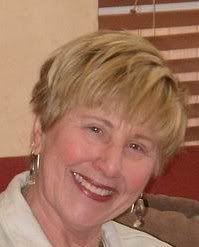All of our great traditions, religious, contemplative and artistic, say that you must a learn how to be alone—and have a relationship with silence. It is difficult, but it can start with just the tiniest quiet moment.
Being quiet in the midst of a frenetic life is like picking up a new instrument. If you've never played the violin and you try to play it for the first time, every muscle in your body hurts. Your neck hurts, you don't know how to hold that awkward wavy thing called a bow, you can't get your knuckles round to touch the strings, you can't even find where the notes are, you are just trying to get your stance right. Then you come back to it again, and again, and suddenly you can make a single buzzy note. The time after that, you can make a clearer note. No one, not even you, wants to listen to you at first. But one day, there is a beautiful succession of notes and, yes, you have played a brief, gifted, much appreciated passage of music.
This is also true for the silence inside you; you may not want to confront it at first. But a long way down the road, when you inhabit a space fully, you no longer feel awkward and lonely. Silence turns, in effect, into its opposite, so it becomes not only a place to be alone but also a place that's an invitation to others to join you, to want to know who's there, in the quiet.
September 13, 2011
Question 5: Can I be alone?
Question 4, The Temple of Aloness
That temple was the house I moved into after the end of a chapter in my life. There I would live alone, but also with my son a good deal of the time. It was a new start. There was a great deal of grief in letting go of the old, but I was so very excited about my new home. I felt that even though it was such a small house and an old house, it had endless new horizons for me, as if the rest of my life was just beginning from that place. It is important to have the equivalent of this house at every crucial stage in our lives. Where do you have that feeling of home? Do you have it in your apartment? Do you have it when you walk along the lakeshore or the seashore? Where do you have that sense of spaciousness with the horizon and with your future?
Gaston Bachelard, a French philosopher, said that one of the beautiful things about a home is that it is a place where you can dream about your future, and that a good home protects your dreams; it is a place where you feel sheltered enough to risk yourself in the world.
September 9, 2011
Question 3
Most people, I believe, are living four or five years behind the curve of their own transformation. I see it all the time, in my own life and others. The temptation is to stay in a place where we were previously comfortable, making it difficult to move to the frontier that we're actually on now.
People usually only come to this frontier when they have had a terrible loss in their life or they've been fired or some other trauma breaks open their story. Then they can't tell that story any more. But having spent so much time away from what is real, they hit present reality with such impact that they break apart on contact with the true circumstance. So the trick is to catch up with the conversation and stay with it —where am I now?—and not let ourselves become abstracted from what is actually occurring around us.
If you were a farmer, and you tried to harvest what belonged to the previous season, you'd exhaust yourself trying to bring it in when it's no longer there. Or attempting to gather fruit too early, too hard or too late and too ripe. A person must understand the conversation happening around them as early in the process as possible and then stay with it until it bears fruit.
